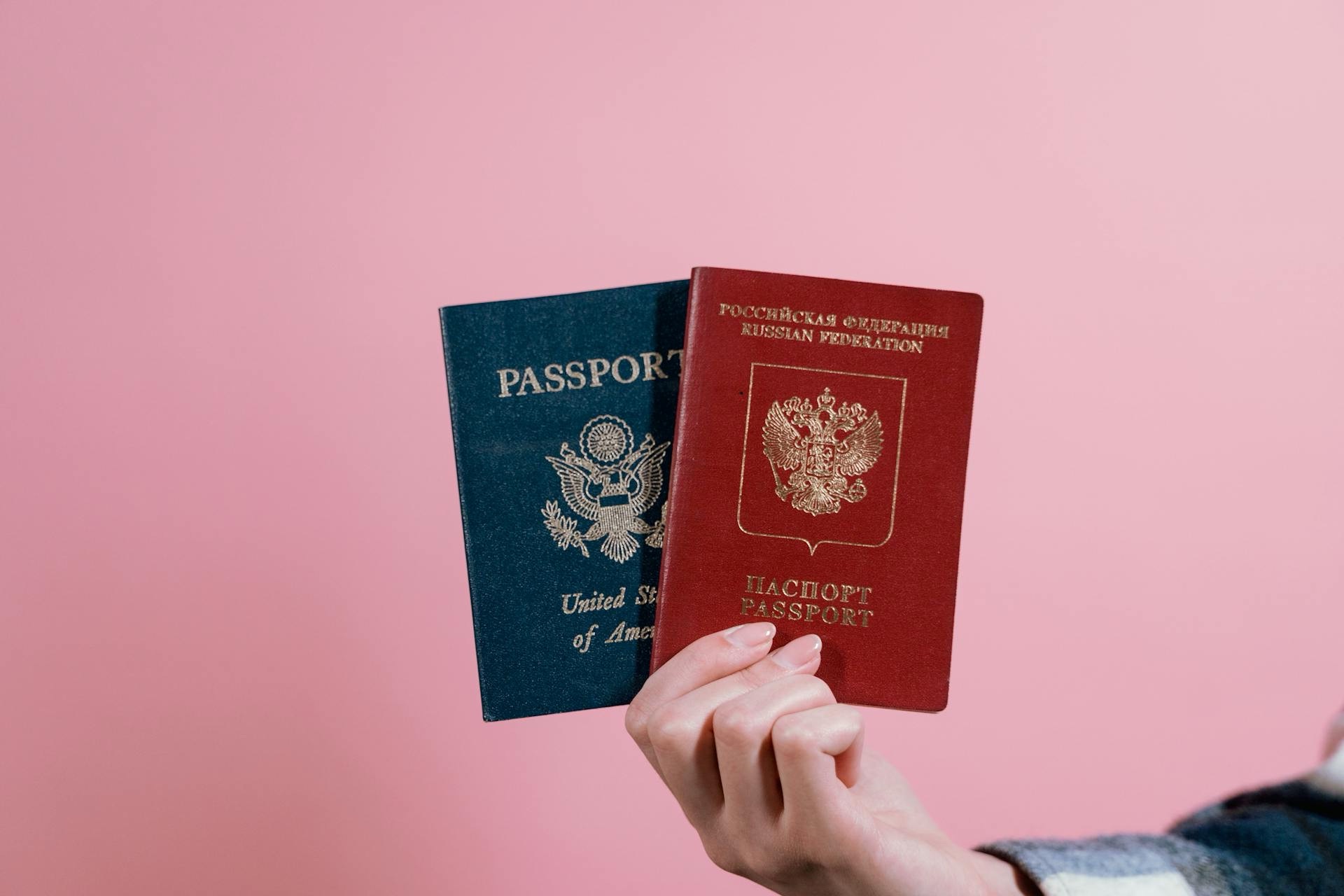Holding multiple nationalities and passports can offer individuals a variety of benefits, ranging from practical travel conveniences to broader financial, personal, and legal advantages. For those who have the opportunity to acquire dual or even multiple nationalities, the advantages often extend beyond just easier access to different countries. Multiple citizenships can offer enhanced opportunities for business, security, education, and a diversified global lifestyle. Here are 11 key benefits of having multiple nationalities and passports:
1. Expanded Travel Freedom
One of the most immediate and significant benefits of holding multiple passports is enhanced travel freedom. With multiple passports, individuals can access more countries visa-free or with visa-on-arrival options, reducing the need for complicated visa applications or long waiting periods. Different countries have different agreements with one another regarding travel, so if one passport restricts you, another might open doors to new destinations.
For example, a European Union passport allows visa-free access to the Schengen Area and many other countries worldwide, while a Caribbean passport might offer visa-free entry to countries such as the UK and Schengen zone, making it easier to move around different regions without bureaucratic delays.
2. Access to Social Services and Benefits
Having multiple nationalities grants you access to social services in more than one country. This includes healthcare systems, pension benefits, and public education. Depending on the countries involved, dual or multiple citizens can take advantage of free or subsidized healthcare, which can be a significant benefit, particularly in countries with robust public health systems.
For example, someone holding both American and Canadian citizenships could access the Canadian public healthcare system while still benefiting from U.S. Social Security if they worked in the U.S. Additionally, citizenship in EU countries often grants access to the social welfare systems in other EU nations, further expanding the benefits.
3. Economic and Financial Opportunities
Dual nationality can open the door to business opportunities in multiple countries. It allows for greater ease in opening bank accounts, starting businesses, and investing in countries where you hold citizenship. Many countries offer tax incentives, favorable banking systems, or investment opportunities for citizens, which can be beneficial for entrepreneurs or investors looking to diversify their assets.
Some countries restrict foreign ownership of land or businesses, but holding citizenship in those nations bypasses these restrictions, giving you the freedom to own property and engage in entrepreneurial activities without additional legal hurdles.
4. Education Benefits
Many countries offer free or reduced-cost education to their citizens, and by holding multiple citizenships, you can access these opportunities in more than one country. This includes university tuition, access to scholarships, and other educational programs that may not be available to non-citizens.
For instance, if you hold European citizenship, you may be eligible for in-state tuition or free higher education at public universities in many EU countries, saving significant amounts of money compared to studying as an international student. Similarly, certain countries offer citizens specialized grants or loans to pursue educational opportunities both locally and abroad.
5. Taxation Flexibility
One significant benefit of holding multiple nationalities is the potential for tax optimization. Different countries have different tax laws, and being a citizen of more than one country may allow you to structure your finances in a way that reduces your overall tax burden. Some countries have tax treaties to prevent double taxation, allowing individuals to avoid paying taxes on the same income twice.
For example, U.S. citizens are taxed on their global income, but some countries, especially those with territorial tax systems, only tax income earned within their borders. Having multiple citizenships can give individuals flexibility when it comes to choosing where they reside and how they manage their taxation obligations, particularly for high-net-worth individuals or international business owners.
6. Political and Civic Participation
Dual citizenship allows you to participate in the political processes of more than one country. This means you can vote in elections, run for office (in countries where dual citizens are permitted to do so), and have a say in the governance of multiple countries. Having the ability to vote in more than one country gives you a broader influence over policies that could affect you or your interests.
Moreover, citizenship in multiple countries often provides the right to engage in civic duties, such as serving on a jury or contributing to local governance efforts, which can give individuals a stronger sense of belonging and impact in multiple nations.
7. Employment Opportunities and Work Rights
Holding multiple passports often means you can legally work in more than one country without needing a visa or work permit. This is particularly beneficial in regions like the European Union, where citizens of one EU country have the right to live and work in any other EU member state.
Similarly, holding citizenship in a country that is part of certain international agreements, like the Commonwealth, can offer employment advantages in other member states. This expanded access to job markets can give you a significant competitive edge, enabling you to pursue career opportunities in a variety of industries across different countries.
8. Property Ownership and Real Estate Investment
In some countries, foreign nationals face restrictions on buying or owning property. By holding citizenship in multiple countries, you can bypass these restrictions and have the legal right to purchase property or invest in real estate in multiple nations. This can be an incredible advantage for people looking to diversify their real estate portfolios or establish residences in different parts of the world.
Additionally, owning property in multiple countries gives you flexibility in living arrangements and potentially opens up lucrative opportunities in the real estate market, particularly in countries where property values are rising or where owning property provides additional residency or tax benefits.
9. Access to Consular Support and Protection
Having multiple passports provides you with the benefit of consular protection from more than one country. If you are traveling in a country where one of your nations of citizenship does not have a diplomatic presence or is unable to assist you, your other nationality could allow you to seek assistance from another embassy or consulate.
This can be particularly useful in emergency situations—such as during political unrest, natural disasters, or international incidents—where a specific embassy might offer more robust protection or evacuation options. Dual citizens can also benefit from dual consular registration, allowing them to take advantage of the diplomatic resources of both countries when abroad.
10. Emergency Evacuation and Mobility
In times of political instability, war, or natural disasters, having multiple nationalities can offer greater mobility and options for evacuation. If one of your countries of citizenship faces internal conflict or a national crisis, having citizenship in another country provides a backup plan for safe evacuation and relocation. Multiple passports can grant you the ability to leave a conflict zone more easily or access safe haven in another nation without the typical restrictions placed on foreign nationals.
For instance, during times of political turmoil or natural disasters, having access to multiple embassies or consulates gives you more flexibility in terms of receiving emergency assistance or being airlifted to safety. This expanded access to legal protections and international mobility can be life-saving in extreme circumstances.
11. Cultural and Social Integration
Holding multiple nationalities offers a unique opportunity for cultural enrichment and social integration in different countries. With citizenship comes the right to immerse yourself fully in the cultural, social, and historical aspects of each country you belong to. This can lead to a more diverse worldview, the ability to form deep connections in multiple countries, and a better understanding of different societal systems.
Having dual or multiple citizenships can also foster stronger family connections, especially for individuals with heritage in different countries. It allows them to maintain closer ties with family and cultural roots, while also taking advantage of the legal and social privileges that come with being a citizen of multiple nations.
Furthermore, dual citizens often enjoy more seamless integration into society when relocating to another country of citizenship, as they are generally treated as locals rather than expatriates or foreigners. This can make navigating daily life, such as accessing healthcare, finding housing, or engaging in social activities, much easier and more fulfilling.
Conclusion
The benefits of holding multiple nationalities and passports are substantial, providing individuals with unparalleled flexibility and opportunities across many aspects of life. From expanded travel freedom and economic benefits to enhanced legal protection, employment opportunities, and cultural immersion, dual or multiple citizenships offer a wide array of advantages that can improve one’s quality of life and professional prospects.
While managing multiple nationalities does come with certain complexities, such as tax obligations or military service requirements in some countries, the benefits often outweigh the challenges. For those with the opportunity to hold multiple citizenships, the ability to tap into the resources, privileges, and protections of more than one nation can be a life-changing advantage in our increasingly interconnected world.




